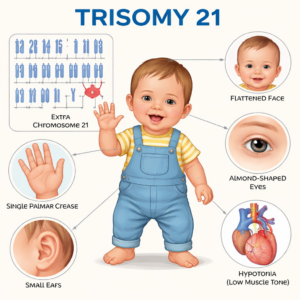Navigating the world of developmental disorders can be overwhelming for parents. Asperger Syndrome, a condition on the autism spectrum, often brings with it a range of challenges and questions. Gaining a clear understanding of Asperger Syndrome, its symptoms, causes, and the role of AI tools in diagnosis, can empower you to make informed decisions for your child’s well-being. We aim to illuminate these aspects, offering practical insights and resources.
What is Asperger Syndrome?
Named after Dr. Hans Asperger, an Austrian pediatrician who first described it in 1944, Asperger Syndrome affects how a person socializes and communicates. Asperger Syndrome is part of the autism spectrum and is characterized by difficulties in social interaction and nonverbal communication, alongside restricted and repetitive patterns of behavior and interests. Unlike other forms of autism, individuals with Asperger Syndrome typically do not have significant delays in language or cognitive development.
Symptoms of Asperger Syndrome
Recognizing the symptoms early can play a crucial role in accessing timely interventions. Common signs include:
Social Interaction Challenges:
- Difficulty understanding social cues and body language
- Limited eye contact and seeming aloof or uninterested in others
Communication Difficulties:
- Literal interpretation of language
- Challenges with conversational reciprocity
Behavioral Traits:
- Intense focus on specific topics or interests
- Preference for routines and difficulty adapting to changes
Understanding these symptoms helps in identifying whether your child might benefit from further evaluation.
Causes and Risk Factors
The exact cause of Asperger Syndrome remains unknown, but research suggests a combination of genetic and environmental factors may contribute to its development.
- Genetic Factors
Family History: There is evidence to suggest that autism spectrum disorders (ASD), including Asperger Syndrome, can run in families. If one child is diagnosed with ASD, siblings may also be at risk.
Genetic Mutations: Certain genetic changes or mutations have been linked to an increased likelihood of developing Asperger Syndrome.
2. Environmental Influences
While genetics play a significant role, environmental factors such as prenatal exposure to toxins or complications during birth may also impact the risk.
Understanding these risk factors can help you assess potential concerns with healthcare professionals.
How the Family Health Checker app can help
The Family Health Checker app provides parents with an AI-powered platform for addressing concerns about their child’s developmental and genetic health, offering free and easy-to-use assessments. Many developmental delays may be linked to genetic factors and early diagnosis and intervention are essential. After completing the assessment, parents receive a free report that highlights potential areas of concern. The app includes features for connecting with healthcare professionals for further evaluation and offers a no-cost genetic test for children who qualify. With its secure, user-friendly design and compatibility across various devices, the Family Health Checker app enables parents to assess their child’s development comfortably from home. Although AI tools can help speed up the diagnostic process, consulting a healthcare professional for a formal diagnosis and personalized guidance is vital.
Understanding Asperger Syndrome is an essential step toward advocating for your child’s needs. By recognizing symptoms early, considering potential causes, and leveraging AI tools for expedited diagnosis, you are equipped to make informed decisions that support your child’s development. Remember, you’re not alone in this journey, resources and communities are available to provide support every step of the way.



